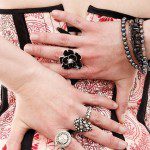It’s here. The Queen dropped a super secret new album on Saturday night on HBO. It is poetic and raw. It is gorgeous and a little ugly. It is a mind-melting paradox of empowered vulnerability… Or vulnerable empowerment? It is brand new, with razor-sharp edge…and yet, there is something ancient about it. It is art and story and song.
Like the halftime show that she totally crashed (stole) from that one guy (what’s his name?) with the “Formation” bad-assery, the newly released Lemonade–in all its paradox and beauty and poetic suffering–isn’t mine. And if you’re a white woman, it’s not for you either.
If you’re a white heterosexual man, it’s for sure not yours.
If you’re a gay dude? Debatable. Y’all have some kind of fandom going out there that has it’s own rules, and I’ll abide. I’m not going to tell you if it is or if it ain’t yours.
I just know for sure it doesn’t belong to me.
For those of us who happen to be straight white Americans, this is not something we are accustomed to hearing from the entertainment industry; or any industry, for that matter. And this is what privilege means…to rarely, if ever, hear the words “This is not meant for you,” aimed in our direction.
In this case, it’s an especially hard truth to acknowledge, because she is so amazing. When she is dancing like a goddess, and sticking it to the boys club in her I-don’t-give-a-**** shoes, we want to believe that she is every feminist fantasy that we have ever choreographed while sitting through a long meeting. (No? Just me?) But here’s the truth we must hear in this new album: her’s is the anthem, not of the single ladies, not of the run the world girls… but of strong women of color. As a white woman, it’s not a tune I’m allowed to sing along with.
Ijeoma Oluo says:
Lemonade is about so much more than one relationship and its infidelity. Lemonade is about the love that black women have – the love that threatens to kill us, makes us crazy and makes us stronger than we should ever have to be.
We are the women left behind. We are the women who have cared for other women’s children while ours were taken away. We are the women who work two jobs when companies won’t hire our men. We are the women caring for grandchildren as our sons are taken by the prison industrial complex. We are the women who march in the streets and are never marched for. We are the women expected to never air our grievances in public. We are the women expected to stay loyal to our men by staying silent through abuse and infidelity. We are the women who clean the blood of our men and boys from the streets. We are the women who gather their belongings from the police station.
You can say that her risque costumes are the antithesis to feminism; but you are missing a big piece of the story. You can say that staying with her husband after rumored domestic violence makes her weak; but you are missing part of the story. You can say that she’s sold out to big labels and corporations, but you’d be missing a big part of the story.
You can say that this new album is too angry, too dark, too crass and, well, “colorful” in its language and imagery. If that’s how you feel, then there’s good reason: because it’s not for you.
It’s not for me either.
But I will listen. I will listen with deep admiration–not just for the art, but for the spirit and story it embodies. I will marvel at its strength and its witness. But I will listen like you might watch a rare bird in the wild. Not to be touched, held or owned…just glimpsed through dense branches. A blur of color, off to settle in its true home.
This is me not writing about Beyoncé. Or at least…not with any authority. This is me, back to listening.
If you want to listen too, start here:
Ijeoma Oluo, for The Guardian
Kiana Fitzgerald, for NPR
Courtney Hall Lee, for Sojourners
Austin Channing, her blog.
Or just go read What To Read After Watching Lemonade













